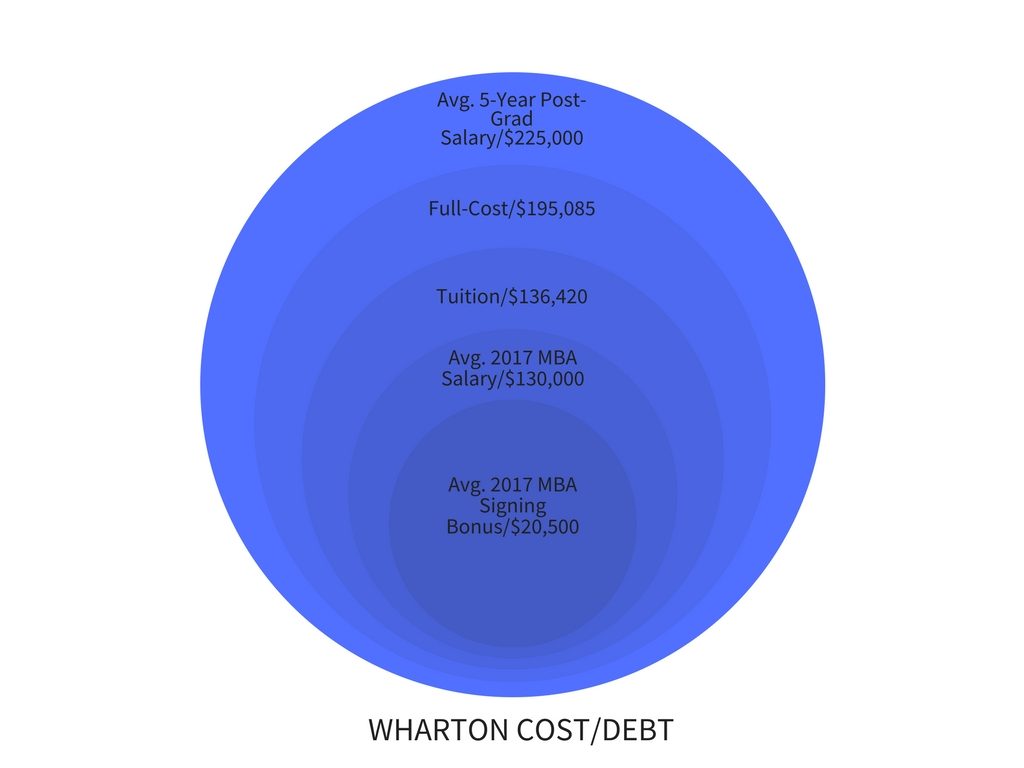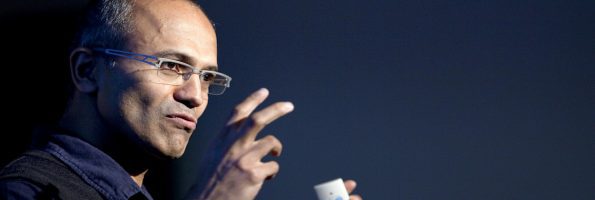Finance Fraud Won’t Stop, and More – New York News

Let’s explore some of the most interesting stories that have emerged from New York business schools this week.
Don’t Let Artificial Intelligence Take Your Job – Rutgers Business News
The Rutgers Business School is slated to host a symposium this week entitled “Lifelong Learning in the Digital Era,” which will host LinkedIn, edX, Google, and McKinsey experts, among others, to “offer solutions to companies and individuals on how they can refresh their knowledge and skills and not become irrelevant in the new digital economy.”
Rutgers Dean Lei Lei says, “The pace of change in technology requires both management and the workforce to keep their skills current. Otherwise, they will lose out to competitors that have increased their efficiency and stimulated product innovation,” she said.
Rutgers Assistant Professor of Professional Practice and Symposium Organizer Leon Fraser adds, “Recent college graduates as well as seasoned executives must refresh their skills regularly or risk becoming irrelevant and disposable.
You can read more about the recent symposium here.
It Pays to Cook the Books–Even When You Get Caught – Columbia Business School News
According to new research from Columbia Business School’s Shiva Rajgopal and Dan Amiram, along with researcher Serene Huang, the risk of detection for cooked books is only about 25 percent, which means that “more than half of perpetrators—most often the CEOs and CFOs of major companies—could find it beneficial to commit financial reporting misconduct.”
Rajgopal writes, “Unless regulators improve their processes, research shows that financial reporting misconduct will continue to be an attractive option.”
Their study, “Does Financial Reporting Misconduct Pay Off Even When Discovered?,” finds that “stock market losses are an effective deterrent: analysis shows that the average cost of getting caught amounts to $26.7 million, with the notable hits coming via stockholding and forgone earnings, suggesting that the stock market and the labor market are generally effective at punishing perpetrators.”
You can read the complete study here and the full article from Columbia Business School News here.
Young Professionals Earn Binghamton University MBA While Pursuing Full-Time Careers in NYC – Binghamton SOM Blog
The Binghamton University School of Management blog recently highlighted its one-year Professional MBA (PMBA), which enables students to earn MBAs while simultaneously pursuing careers via Saturdays-only classes.
“The PMBA program is designed specifically for New York City-based young professionals who are looking for a step up without temporarily stepping out of their relatively new careers.”
Trevor Smith (MBA ’17) and current district sales manager for Mazda of Boston writes, “It’s so much more than being able to look at data and know what’s going on—we learned how to deliver an effective message and story based on the data.”
“I feel much more comfortable communicating with top decision-makers than before, and it prepared me to better manage both my personal and professional life.”
Laurice LuSane (MBA ’15) and Weill Cornell Medicine Fellowship Coordinator adds, “What I was learning made me feel ready for something new. I was ready for new challenges at work. I was given more opportunities to speak out, to plan, to manage and to show I was capable.”
You can visit the program page here and check out the entire Binghamton SOM Blog entry here.
Working From Home, Maximizing Profits, and More – Chicago News

Let’s explore some of the most interesting stories that have emerged from Chicago business schools this week.
Are You a Different Person at Work Than at Home? Compartmentalizing Like This Can Lead to Unethical Decisions – Kellogg Insights
Northwestern Kellogg Assistant Professor of Marketing Maferima Touré-Tillery and the University of the Sciences’ Alysson Light coauthored new research, which finds that “people who perceive their personalities as constant across their roles are more likely to behave ethically than those who think of themselves differently in each role.”
Touré-Tillery explains, “If I tend to think about myself the same way from one identity to the next, then if I do something that’s going to make me feel bad about myself, it’s likely that I’ll feel bad about myself across all of my identities.”
She adds, “Every unethical thing amplifies that sense of being a bad person. By having them merge their work and personal lives, you are helping them merge their identities as parent and worker—so they might behave more morally across the board.”
You can read the full Kellogg Insights article here.
Should Public Companies Do More Than Maximize Profits? – Chicago Booth
At a recent panel discussion hosted by Chicago Booth’s Rustandy and Stigler Centers, BlackRock Co-founder Sue Wagner and Booth’s Luigi Zingales and Marianne Bertrand dissected BlackRock CEO Larry Fink’s letter to his fellow CEOs, imploring them to engage more deeply with social issues as part of their long-term strategies.
Moderator Robert H. Gertner explains, “We have seen greater discussion, both within and outside of academia, about the role of corporations. It has come from consumers, from employees, from the government, from academics, and from investors. Perhaps this letter from Larry Fink may go down as a sort of cornerstone of this discussion.”
You can read the full exchange between all the panelists here.
Tech Leader Shares His Views On Innovation, Autonomous Vehicles, and Purpose – Gies School of Business News
The University of Illinois Gies College of Business recently hosted Mobileye ASIC Department Project Manager and Founding Engineer Mois Navon, who discussed how his company’s purpose has driven their success.
The Israeli-based Mobileye is “one of the leaders in driver assistance technology and autonomous vehicle research.” According to the article, “the demonstrated ability of [Mobileye’s] products to help prevent accidents led insurance companies to give discounts to people who used them. People were getting into fewer accidents, and the accidents they did get into were less severe.”

Navon explains Mobileye’s purpose within the Jewish concept of tikkun olam, which means “fixing the world.”
“I think that technology is that driving force for fixing the world—even though new technologies can engender difficult transitions. I think humanity is ultimately driven by purpose. We’re here to fix ourselves. We’re here to fix the world. And I hope you’ll join me.”
You can read more about the company and Navon’s speech at Gies here.
So, What is a Strategy MBA and Where Can You Find One?

For those who don’t have a natural knack for strategic thinking, the ability to analyze effectively and make logical decisions can often seem like the kind of skill that just can’t be taught. Luckily, most business schools disagree.
Not only is strategic thinking a skill that can be studied and improved, but an advanced education in this field can lead to a wide array of careers, often incredibly lucrative ones. After all, the ability to make strategic decisions can lead to success in all aspects of business and across numerous industries- that might be why those who earn MBAs in Strategic Management are entrepreneurs, COOs, Department Supervisors, Business Analysts, and are found at any number of high-level management positions.
Whether you are born with the skill or not, pursuing a Strategy MBA is the perfect way to set yourself up for a versatile career in strategic management.
What is a Strategic Manager?
In an ever-changing and often tumultuous business world, an organization’s strategic planner can be a crucial part of their growth and continued success. A career in strategic management or planning will involve keeping an organization on course through the collection, analysis, and organization of information pertinent to the company’s profitability. This may include tracking industry trends, keeping an eye on external business competition or threats, identifying opportunities and creating action plans for a company based on strategic problem solving.
Strategy jobs typically deal in the “big picture” of the company, and are a key part of both shaping and supporting a company’s overall vision and values. The role is a desirable one within a company, as it provides direct access to senior managers and frequently leads to higher level leadership positions.
Strategy jobs require a candidate to use skills from a variety of disciplines, such as finance and marketing. Since these positions are often highly competitive and require candidates to demonstrate a high level of business acumen, earning an advanced degree in strategy is one of the best ways to prove you have the unique combination of skills and drive required for this often demanding—but incredibly rewarding—career.
What Is a Strategy MBA?
Given the breadth of skills required to be a successful Strategic Manager for a company, it’s easy to see why one would want an advanced degree in the field. An MBA specialization in Strategic Management is designed to provide students with a deep grounding within the logic of competitive advantage, focusing on both a broad understanding of business competition as well as a more nuanced training in analysis and decision making.
Offered at some of the top business schools throughout the globe, a Strategy MBA will help set future business leaders on course for careers in strategy consulting, general management, entrepreneurship, and a number of other careers that require the careful skills of analysis and problem solving gained with this degree.
Why Should I Get a Strategy MBA?
With the unique skill set required for a higher-level role in Strategic Management, earning an MBA with a specialization or major in Strategy can be crucial to proving your skill to potential employers. Regardless of your ultimate career goal, the “big picture” type of training offered by a Strategy MBA can be seen as shorthand for a person with the drive and acumen necessary to make crucial business decisions. And graduates with Strategy MBAs don’t always take jobs as Strategic Planners—they are CEOs, entrepreneurs, and other high-level leaders within their organizations.
Those who do earn Strategy MBAs are also often the highest earners among their MBA-holding peers. According to Payscale, Senior Strategy Manager positions can earn salaries of up to $119,000 per year, a large portion of which comes from bonuses, and occasionally, profit sharing. Graduates of Strategy MBA programs are employed at some of the world’s top companies, such as Deloitte, Amazon, and the Intel Corporation.

Where Can You Get a Strategy MBA?
With an increasing demand throughout the years for qualified and experienced strategy planners, a wide variety of business schools—including some of the top ranked MBA programs in the country—have begun to offer MBA specializations in the field of strategy management/planning.
Below are just a few of the MBA programs throughout the United States offering an MBA in Strategy or Strategic Management.
Temple University Fox School of Business
The Fox School of Business at Temple allows MBA students to focus their degree in Strategic Management, or earn a dual degree that combines an MBA with a Master in Innovation Management & Entrepreneurship (IME). The Department of Strategic Management (SGM) at Fox allows students to approach business strategy from four different angles- entrepreneurship, management, consulting, and international business. All for disciplines help prepare students to be leaders within the strategic management field through hands-on instruction, internship opportunities, networking events, travel abroad experiences, and more.
New York University Stern School of Business
The Stern School of Business at NYU allows MBA students to specialize their degree in Strategy, which will help provide a strong business foundation for the business leaders of tomorrow. The degree will help prepare students for a wide variety of fields, including careers in strategic planning, risk management, and management consulting. Courses in strategic management at Stern include: Competitive strategy in the marketplace, corporate governance, strategic design, strategic talent management, and more.
University of Pennsylvania Wharton School of Business
The world-renowned Wharton School at UPenn also offers students the opportunity to earn an MBA in Strategic Management, a major which aims to provide a “deep grounding in the basic logic of competitive advantage premised on a careful analytical treatment of the distinct qualities of positions of individual firms and an understanding of broader competitive dynamics.” Some of the courses offered as part of this major at Wharton include: Deals: the Economic Structure of Transacting and Contracting, Strategic Implementation, Multinational Business Strategy, Competitive Strategy and Industrial Structure, and more
Finding Philly’s Best MBA Return on Investment

It’s no secret that Philadelphia’s relatively low cost of living has historically made the Birthplace of America an attractive option for those in search of a big city experience outside the skyrocketing markets of other major East Coast cities.
As people flock from the New York metro region in search of a similar urban adventure at a substantially lower price point, Philadelphia has been controversially dubbed the “6th Borough.” Word to the wise for potential b-school interlopers: never tell any Philadelphian their home has been annexed by New York City.
About 90 minutes by train from New York City, the City of Brotherly Love is no Big Apple, but it’s one-of-a-kind. Sure, tourists and locals alike grip cheesesteaks in one hand while pumping their fists on the steps of the Art Museum a la Rocky, but the city reveals itself to those who have the patience (and wherewithal) to dig into it.
Whether that means embarking on a two-year MBA program or choosing among the accelerated options available, Philadelphia just happens to be home to several top ranked MBA programs in the world. Let’s take a close look at Philly’s programs. Oh, and here’s a napkin for the wiz.
Philadelphia Return on Investment
University of Pennsylvania’s Wharton School of Business
Officially the oldest business school in the U.S., The Wharton School at the University of Pennsylvania boasts well-known alumni billionaire financier Ron Perelman, LinkedIn CEO Jeff Weiner, and John Sculley of Pepsi and Apple. Wharton’s tuition of $136,420 and estimated total budget of $195,085 isn’t to be taken lightly. However, full-time MBA graduates earn an average base salary of $130,000 with an average bonus of $20,500, and a supreme 92.6 percent job acceptance rate. So, while having a somewhat unimpressive salary-to-debt ratio, Wharton’s reputation and alumni network precedes itself.
In fact, the school recently topped the annual Forbes best full-time MBA program list, sporting the best five-year financial gain after graduation. Wharton MBA graduates of the Class of 2012 are making a $225,000 average annual salary—roughly 42 percent higher than recent grads, easily topping the cost/debt ratio of the program.

Saint Joseph’s Haub School of Business
Notable alumni of Haub School of Business at Saint Joseph’s University include CEO of NutriSystems, Inc. Michael J. Hagan, Chairman and founder of Philadelphia Consolidated Holding Corporation James J. Maguire, and Senior vice president of PNC Bank Denise Viola-Monahan. SJU’s $30,294 tuition set against an average base salary of $65,000 means the school offers a competitive MBA to those who don’t want to break the bank.
Temple’s Fox School of Business
Fox School of Business at Temple University’s notable alumni include Systel CEO Jai Gulati, former COO and president for ConocoPhillips John Carrig, and CEO of Actavis and co-founder of Health Care Compliance Association Brenton L. Saunders. Fox’s tuition sits at $57,048 for residents and $80,484 for nonresidents. With a 97 percent job placement rate compared to $25,623 average debt and a $85,278 average base salary, Fox’s salary-to-debt ratio looks attractive.
Drexel University LeBow College of Business
The LeBow College of Business at Drexel University alumni include President and CEO of Rohm and Haas Raj Gupta, former CEO of Science Applications International Corp. Kenneth C. Dahlberg, and the Phillie Phanatic Tom Burgoyne. Tuition is $59,565, and graduating MBAs carry an average debt of $43,894. With a reported average base salary of $84,080, LeBow’s salary-to-debt ratio is competitive. Considering the comparatively low price point, LeBow emerges as an incredibly attractive ROI.
YOU MAY ALSO LIKE: How Philadelphia MBA Programs Help Lower-Income Applicants
University of Delaware Lerner College of Business
A short 20-minute train ride from Center City Philadelphia and under two hours from New York City, the Lerner College at the University of Delaware has an eye-catching reported average base salary of $90,291. Compared to tuition, which ranges from $33,000 to $55,000, depending on residency, Lerner’s ROI could shine through if figures hold true for most MBA earners from this institution.
Penn State Smeal College of Business
Although its central campus is located in Happy Valley, PA, the Smeal College of Business at Penn State offers an executive MBA program in Philadelphia. The program is priced at a hefty $102,000, but average graduate debt is reported at $36,500, and median salaries ranging from $97,890 to $101,857. With such an impressive salary-to-debt ratio, Smeal is an attractive option for those who prefer easy metro access rather than living in the thick of the action. Notable alumni include Chairman and CEO of Petroleum Products Corp. John Arnold, and Former Chairman and CEO of Merrill Lynch & Co. William Schreyer.
Alumni Spotlight: Microsoft CEO Satya Nadella – University of Chicago Booth School of Business

Once a ferocious beast in the kingdom of tech with massive product launches and Antitrust sagas, it could be argued that Microsoft has spent the first two decades of the 21st century in search of solid ground. The Steve Balmer era, which focused on “devices and services,” brought us the Xbox, the Surface, and the acquisitions of Skype and Linkedin. Wired posits that the fall of Microsoft “stems from its attempts to lock users into its products by refusing to work with competitors,” coupled with a series of “me-too hardware products,” like the Zune and the Kin. There’s also Bing and MSN, which are practically non-entities compared to their competition.
In the last three years, CEO Satya Nadella has been a relevatory savior for the company, spearheading a massive pivot away away from hardware and toward cloud computing and AI. So far, so good. Company shares reached record highs since 1999 and its cloud is valued at a $14 billion annual run rate, which places Microsoft neck and neck with Amazon Web Services, if you include Microsoft Office 365. That said, Nadella remains unphased by the numbers, as he tells the Economist, “When you have a core that’s growing at more than 20 percent, that is when the rot really sets in.”
Let’s take a deeper dive to find out more about Nadella’s past, present, and future.
Learning at Chicago Booth
Nadella’s tenure at Microsoft is inextricably linked with his University of Chicago Booth School of Business education. In fact he started both at the exact same time, in 1992. Instead of opting out of one for the other, he enrolled in Booth’s Weekend MBA program and flew from Seattle to Chicago every weekend for two-and-a-half years.
Nadella believes his Booth MBA was instrumental in giving him the “knowledge and confidence to tackle complex questions at the intersection of business and technology,” according to a UChicago profile. Nadella cites Steven Kaplan’s entrepreneurial finance class as particularly influential on his ability to “evaluate new business opportunities at Microsoft.” On Nadella, Kaplan spoke highly: “He can take a situation and analyze and articulate the issues involved. He can both write well and understand the case quantitatively.”
Wired traces Nadella’s “clarity of vision and empathetic listening style” to his firstborn son Zain’s cerebral palsy, which helped Nadella “see beyond himself and compelled him to force-rank his daily priorities so that he could meet his son’s needs and still perform his job—the same skill so necessary to effective management.” He tells Wired:
“I think back to how I thought about work before and after, and this notion of the words you say and what they can do to the other person. How can you really change the energy around you? It’s a thing that started building in me, and I started exercising it in my day job. It made a lot of difference to how I felt when I went back home. So much of it is mental attitude.”
Early Days at Microsoft
In 2015, Nadella told UChicago Booth Magazine, “Having grown up in the company, what is it 23 years or so, I always come back to the very first thing Microsoft did, the BASIC interpreter. It was this notion of empowering others to do great things.”
Nadella progressed quickly through company ranks. His first major notch on his belt was Windows NT but played significant technical roles in Bing, MSN, and Microsoft’s advertising systems. UChicago Booth Magazine pinpoints Nadella’s real contribution to the company during his tenure of Executive VP of cloud and enterprise businesses.
“At Microsoft, Nadella is navigating a rapidly shifting technology landscape, in which customers have been moving away from traditional desktop computers, toward nimbler mobile platforms such as tablets and smartphones.” Nadella says, “The only way you’re going to have that mobility of the human experience—not the device—is by having cloud orchestrate the movement.”
CEO
When the Nadella era began, he publicly invoked Nietzsche when he said Microsoft must have “courage in the face of reality,” according to Wired. His approach to steering Microsoft is nothing if not rooted in reality. Wired compared his Microsoft strategy to those of “the Silicon Valley startups that have eclipsed it” in which the change is cultural, not just organizational. The Economist writes that Microsoft is much more of a “full stack” firm, in which it “not only writes all kinds of software, but builds its own data centers and designs its own hardware.”
Nadella tells UChicago Booth Magazine, “My vision is to take that productivity and empowerment of individuals and organizations and express it in this new world, which is mobile-first, cloud-first.”
Nadella jettisoned the company’s R&D process in favor of a more transparent, open-ended model, which is perhaps in response to such New Coke-style abominations as the Microsoft Courier. He encourages execs to work with people outside their divisions, whose lines of demarcation have become increasingly ambiguous.
He’s pushing engineers and researchers from disparate parts of Microsoft to work more closely together—even wrangling Bill Gates back into the saddle as a part-time technical adviser to motivate his team. “When I say, ‘Hey, I want you to go run this by Bill,’ I know they’re going to do their best job prepping for it,” he tells Wired. Nadella described Microsoft’s Skype Translator, which offers real-time translation of multilingual chats, as the apotheosis of his cooperative company-wide strategy.
The Future
Nadella tells UChicago Booth that his overarching vision for Microsoft is to adapt to the dialogue between culture and technology but to push for a more productive, harmonious conversation. In March, Nadella shared his vision for a new “platform-neutral” Microsoft with the announcement that the company would soon launch Word, Excel, and PowerPoint editions for the iPad.
“Technology has always led us to have better lives [but] you can measure whether you’re doing anything useful. Do you feel a little stretched? If not, there’s something wrong.”
MBA Alumni Spotlight: Nike Co-Founder Phil Knight – Stanford Graduate School of Business

Phil Knight, a graduate of the Stanford Graduate School of Business, didn’t become one of “the most powerful person in sports” overnight. The co-founder and chairman of Nike, Inc., the world’s most successful sports apparel manufacturing company, saw a lengthy and uncertain career filled with hurdles before amassing tantamount success. Continue reading…
